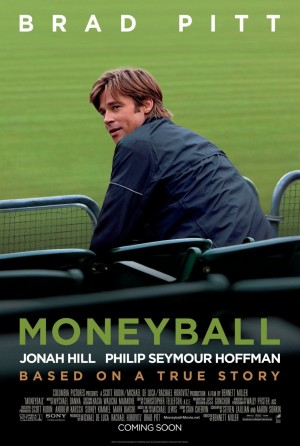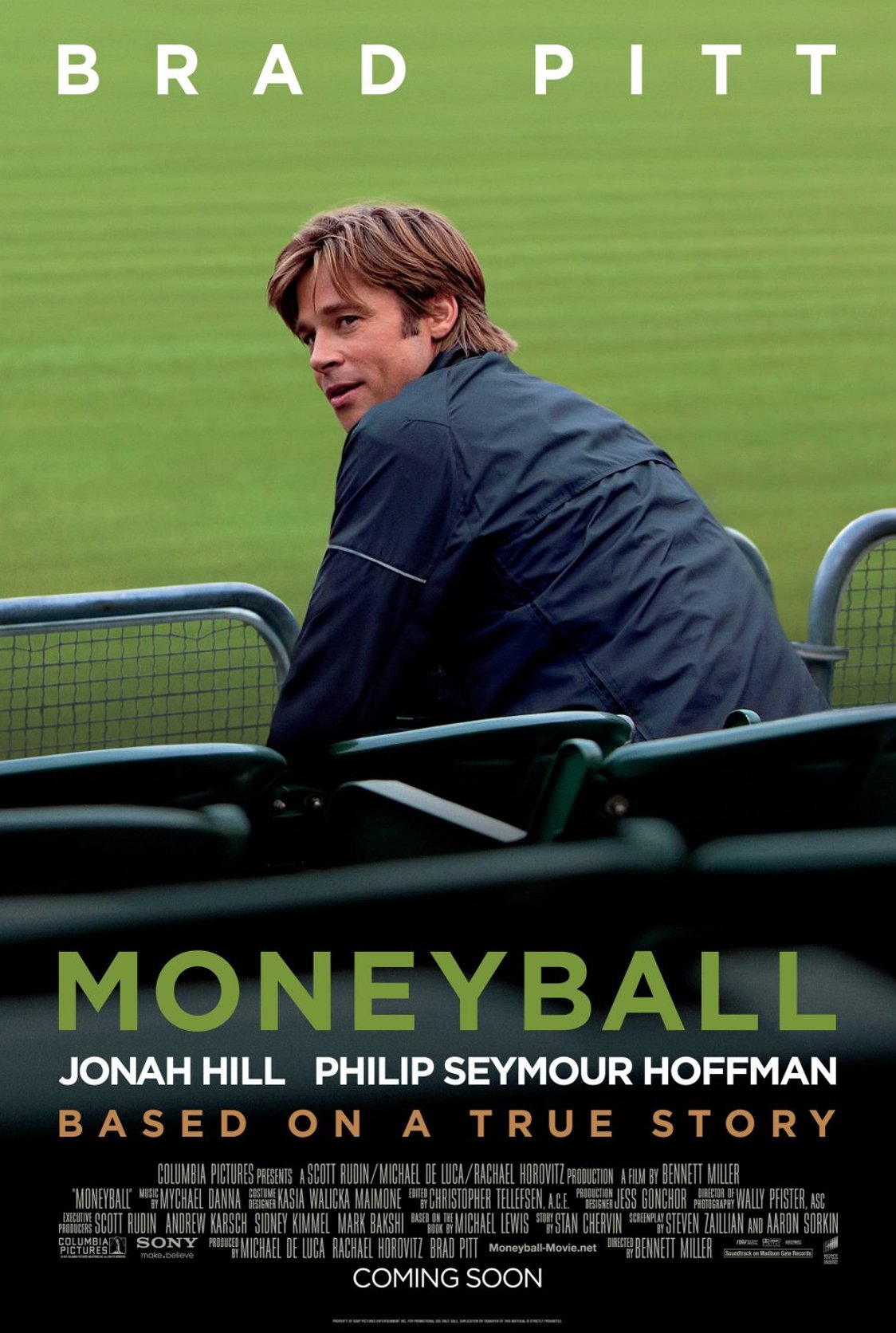There was a handful of reasons why I was reluctant to see Moneyball, but the most prominent one was that I thought it was going to be a sports movie. The flaw with most sports movies is that they tend to be formulaic, overly thematic, and far too eager to pull at your heartstrings like a mawkish Nicholas Sparks romance: the paralyzed athlete, the emotional locker room pep talk, the restitution of a father-son relationship — Moneyball has none of these elements, but it does have solid performances, a script from two major-league screenwriters (Steven Zaillian and Aaron Sorkin), and flawless direction from Capote’s Bennett Miller that makes scenes of men spitting chewing tobacco and talking at a table seem completely engrossing.

The film opens with an epigraph of a quote from Mickey Mantle (for those like me who aren’t baseball fans, he was a big-shot New York Yankees player from the 1950’s): “It’s unbelievable how much you don’t know about the game you’ve been playing all your life.” Like all well-placed epigraphs, it permeates and foreshadows the entirety of the plot. Indeed, Moneyball serves to expose the behind-the-scenes action of Major League Baseball. Scenes of head scouts’ cinderblock offices and shabby little kitchens near the locker rooms really stick a knife in the belly of the glorified world of professional sports. The actual players are traded back and forth like baseball cards and recruited based on appearance, as if it’s all some type of beauty contest.
Enter Billy Beane, played by Brad Pitt, the Oakland Athletics’ general manager who is tired of watching his team trickle further into insignificance as low revenue and underwhelming seasons drive away his three star players. Beane meets Peter Brand (Jonah Hill), a young economics major from Yale, and together, they shake up the system by utilizing the power of mathematics to create a team with some of the most unconventional players – “an island of misfit toys,” as Jonah Hill’s character puts it.
Moneyball isn’t about the Oakland A’s; it’s not even really a movie about baseball (so even if you’re not a sports person, you won’t be lost). In its most distilled form, Moneyball is about politics and statistics. In fact, there seem to be more montages of spreadsheets and percentages than there are of gameplay (and when there is gameplay, we get a lot of close-up shots of numbers on scoreboards and counters). Instead, the game of baseball is ingrained into the plot itself. Moneyball is full of big negotiations carried out through silent, understated across-the-room nods and squints, evoking the subtle gestures made between the pitcher and the catcher. The action is slow and deliberate but absorbing, right up until the film’s bottom of the ninth, where the bases are loaded with two strikes and two outs, and you find yourself cheering as excitedly and nervously for the characters as you would for the home team. Moreover, tangled within drama on the field, there is a poignant yet understated plot between Brad Pitt’s character and his 12-year old daughter which could have been a decent film on its own.
While there has been plenty of Oscar buzz surrounding Brad Pitt (for some reason, it’s easy to forget how talented he actually is), the scene stealer for me was Jonah Hill. Though he has built his career on playing daft, over-the-top, foul-mouthed characters, Hill is surprisingly effective as the quiet intellectual. He delivers his lines with just the right amount of timidity, followed by just the right wide-eyed stare through thick glasses, that every moment with him on screen is as comedic as it is endearing. I’m not saying that he should be keeping his fingers crossed for a nod from the Academy, but if you’ve never been a fan of him before, you might find yourself surprised by his performance.
Based on the Michael Lewis book Moneyball: The Art of Winning an Unfair Game, Moneyball is an engaging, touching film set in the world of sports that isn’t necessarily about sports. A-


Wow thank you!!! excellent run-down.. I’ll see the movie..
Wow, I thought it was a boring movie, now I must go see it.
Great review. I’ll go see it this weekend. If only Nicolas Cage played Billy Beane!
You have brought tears to my eyes in your writing. You go girl!